6 STEPS TO HELP YOU MAKE THE LEAP TO HOME OWNERSHIP
We’ve all seen the numbers - the housing market is racing forward as incomes are left in the dust with little to no growth and an increase in precarious work. A member of my Strive group recently asked for some insights on how to get into the housing market. I thought back to the many Strive interviews I have conducted as well as my experiences and pulled together a top 6 list that may be helpful if you are in the process of trying to make that leap.
1. Find out how much you can afford: I think this is the most important thing anyone considering home ownership can do - having a clear understanding of the level of debt you personally feel comfortable taking on. People will have different debt levels they feel comfortable with AND your level will probably be different from what the bank or mortgage broker gives you. You can get a better understanding of what you feel comfortable with by gathering key information including:
A budget –I have seen individuals take their existing budget and create a few different scenarios with expected costs in the future when they purchase a house. They add in the house expenses they are not paying (utilities, taxes, maintenance) to their existing costs and then replace their rent with estimated mortgage amounts, creating various scenarios with different mortgage amounts and expenses. When I bought my first home, I added in a pretty healthy “if shit hits the fan emergency line”. That made me feel comfortable that if my furnace broke, I could still figure out how to get through with heat over the winter.
A Pre-approval amount – This is what the bank approves you for. They will use a breadth of financial information including your income, expenses, assets and credit history to assess the level of debt they think you can take on.
An understanding of the how others are dealing with mortgage debt at the level you are considering - This information is critically valuable and although it may seem hard to get, it is probably easier than you think. Understanding the challenges of others will give you real insights into choices you may have to make or the types of challenges you may be faced with. Try sharing with friends or family your situation and asking if they would be open to sharing their journey or process. You can also try to find online blogs that may have candid honesty.
2. Think of ways to lighten the financial stress – There is no doubt that a house purchase in today’s market is a stretch for most people. Given that, some individuals have started to look at ways of making it more manageable. Some strategies individuals have used to make the leap include:
Purchasing a home in collaboration with others - This is a great way to manage the financial burden, reduce the risk and build community. Check out this article on co-ownership and GoCo Solutions for more info
Looking for houses with basement apartments or even separate entrances that you could turn into basement apartments - This is a great way to add additional income. We have a basement apartment in our home and it is a huge asset financially
Learning more about houses and maintenance stuff – Housing maintenance is expensive but most of the small stuff may be doable by yourself. The more you learn, the more money you’ll save by either doing it yourself or by being able to challenge the often ridiculous quotes you get to repair or maintain your home
Considering renting out a room – This could also be a good way to add additional income should unexpected expenses or challenges arise
3. Set a target price range – Using the information from above, you can come to an amount that you feel comfortable affording. Many individuals spoke about how important it was to view houses in their price range. They spoke of how looking at more expensive houses can be tempting and encourage over extension.
4. Find the best mortgage rate and features – You will pay a lot of interest fees on your house over the years so it is worth spending the time up front to reduce the total borrowing costs. Individuals I spoke with got multiple quotes from different banks and mortgage brokers before making a decision. Ratehub is a good place to start and get some quotes.
5. Find an agent and try negotiating with that agent up front – A house is probably the biggest expenditure you will make for a long time. Often times we think we can only negotiate on the price of the house but there are also smaller areas where we can save money. Margaret, who is my favorite Strivian negotiator, worked with her real estate agent to reduce his commission. She was selling and buying a house so his standard commission on that would have been 5% of the total amount (2.5% on each). She negotiated him down to 3.5%. This saved her over $25 k.
This will not be as easy with only one purchase, instead of a purchase and sale, or a lower purchase price but even a .5% reduction on commission could be a worthwhile start to a “if shit hits the fan emergency bucket”
6. Spend time looking around, learning, prioritizing your needs and selecting your home - This will make sure you get what you need at a price you can afford
Good luck to all in your home ownership journey!
